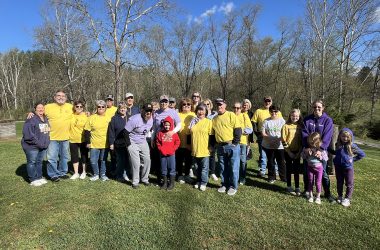John 15:1-8
The entirety of the text before us consists of words which Jesus spoke to the eleven disciples who walked with Him to Gethsemane following the last supper. Judas was not present. The Lord’s words are for the ears of all who believe.
The picture which Jesus placed before the disciples is that of a vineyard tended by a husbandman (God the Father). It is a vineyard consisting of one vine, and that vine is Christ Jesus.
In verse 2, Jesus made it known that both productive (fruitful) branches and non-productive branches would shoot forth from Him, the vine. After a period of time, the husbandman would remove branches that failed to produce fruit. After removing these branches, the husbandman would prune (purgeth) the fruitful branches such that they might bring forth more fruit. Jesus reveals the identity of the fruitful branches by implication in verse 3 and directly in verse 5.
In verse 3, Jesus announced, “Now ye are clean through the word which I have spoken unto you.” This announcement is linked to the preceding verse by “Now.” To what, in verse 2, does Jesus refer? Verse 2 is about removing unproductive branches and pruning (purging) productive branches. In verse 3, the disciples possess a new state of cleanliness. The link between the disciples’ cleanliness and that which transpired in verse 2 is made clear in verse 5. The disciples are the productive branches which were made clean by that which the husbandman did in verse 2.
The link between verse 2 and verse 3 is immediately apparent in the original Greek text of John’s gospel. The word “purgeth” in verse 2 is kathairo and the “clean” of verse 3 is katharos. The verb kathairo means to make clean by removal of unproductive wood and katharos (an adjective) means clean. The cleansing action (kathairo) of verse 2 produced the cleanliness that made the disciples clean (katharos) of verse 3.
In announcing “ye are clean through the word I have spoken unto you,” Jesus proclaimed to the disciples that they were the branches which God the Father (the husbandman) had cleansed such that they might bring forth fruit and more fruit. Knowledge that one has been selected by God to be an agent of His will is not cause for celebration. It is cause to act; it is pressure to produce fruit.
Each disciple was to produce much fruit. In verse 4, Jesus informed the disciples of the manner in which they were to produce fruit. He said, “Abide in me.” To abide in Christ, one must follow the Son’s example of obedience to the Father’s will. “Abide in me” means to do as Jesus did. He sought the Father’s will without ceasing.
The words, “Abide in me, and I in you,” are spoken to all who have the ears to hear. They are spoken to every branch which has not been removed from the vine. They are spoken to each and every branch that will ever bring forth fruit. They are spoken to all who know that they are totally dependent upon the one and only true vine. They are words spoken to all who know that they are saved by grace through faith given by God (Eph. 2:8, 9). A branch, separated from the vine, cannot produce fruit (v. 5). Believers separated from Christ are powerless.
Branches separated from the vine wither and are cast into the fire and burned (v. 6). There are some who take the burning of the separated and withered branches to mean that salvation is conditional upon being attached to the true vine. This view is not supported by the actual words of the Greek language in which John recorded his gospel. There are multiple Greek words which are translated as burn or burned. Burning for purpose of destruction is expressed by katakaio. Burning for purpose of producing light is expressed by kaio. The word used in verse 6 is kaio. The branches which the husbandman separated from the true vine are not destroyed; the separated branches are used to produce light for men. The light from burning branches flares up, flickers, glows, then fades. That light does not produce fruit. The branches that abide in the vine are fruitful. Fruitful branches radiate the light of the Word which came into the world (Jn. 1:4).
In verse 7 Jesus said, “. . . ye shall ask what ye will, and it shall be done unto you.”
Receiving the desires of the heart is not dependent upon that which is asked. It is dependent upon having the right heart. When believers abide in Jesus and He in us, our hearts become right. Our hearts become as His, ever seeking the Father’s will. One cannot change the character of his heart. God transforms the hearts of them who abide in the Son and the Son in them. Evidence of that transformation is seen in answered prayer.
“Herein is my Father glorified, that ye bear much fruit; so shall ye be my disciples” (v. 8). God is glorified by the branches which bear much fruit. The branches have no strength in themselves but every branch that abides in the Son and the Son in him is given power, power unlimited to do the Father’s will. God glorifies Himself in all who ask that He purge them of all dead wood.
Let us pray and be purged such that we become vessels which glorify the Father. Let us abide in Him and He in us. Let His love be seen. Let the Son glorify the Father in the vessels He has cleansed.



